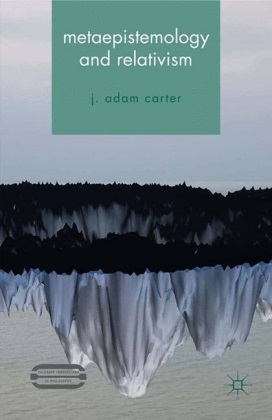Read more
Is knowledge relative? Many academics across the humanities say that it is. However those who work in mainstream epistemology generally consider that it is not. Metaepistemology and Relativism questions whether the kind of anti-relativistic background that underlies typical projects in mainstream epistemology can on closer inspection be vindicated.
List of contents
1. Metaepistemology and Realism 2. Global Relativism 3. The Pyrrhonian Argument for Epistemic Relativism 4. Dialogic Arguments for Epistemic Relativism 5. Incommensurability, Circularity and Epistemic Relativism 6. Replacement Relativism: Boghossian, Kusch and Wright 7. A Different Kind of Epistemic Relativism 8. New Relativism: Epistemic Aftermath 9. Metaepistemology and Relativism
Summary
Is knowledge relative? Many academics across the humanities say that it is. However those who work in mainstream epistemology generally consider that it is not. Metaepistemology and Relativism questions whether the kind of anti-relativistic background that underlies typical projects in mainstream epistemology can on closer inspection be vindicated.
Report
"Adam Carter's book is both a meticulous and erudite review of old and new controversies over epistemic relativism, and an original intervention into current debates. It should be obligatory reading for novices and specialists." Martin Kusch, University of Vienna, Austria
"As everyone familiar with contemporary epistemology knows, the ghost of Protagoras is still with us. Adam Carter gives here what may well be the best discussion of contemporary issues about relativism. His redrawing of the landscape at the meta-epistemological level is lucid, sophisticated and forceful." Pascal Engel, School for Advanced Studies in the Social Sciences (EHESS), Paris, France
"Relativism has been the focus of much recent debate among epistemologists and philosophers of language alike. Metaepistemology and Relativism assesses, with originality and insight, the motivating argument for traditional and new forms of epistemic relativism and demonstrates their wider philosophical significance. This welcome book on a hugely significant topic is indispensable to all those interested in contemporary debates in epistemology," Maria Baghramian, University College Dublin, Ireland

